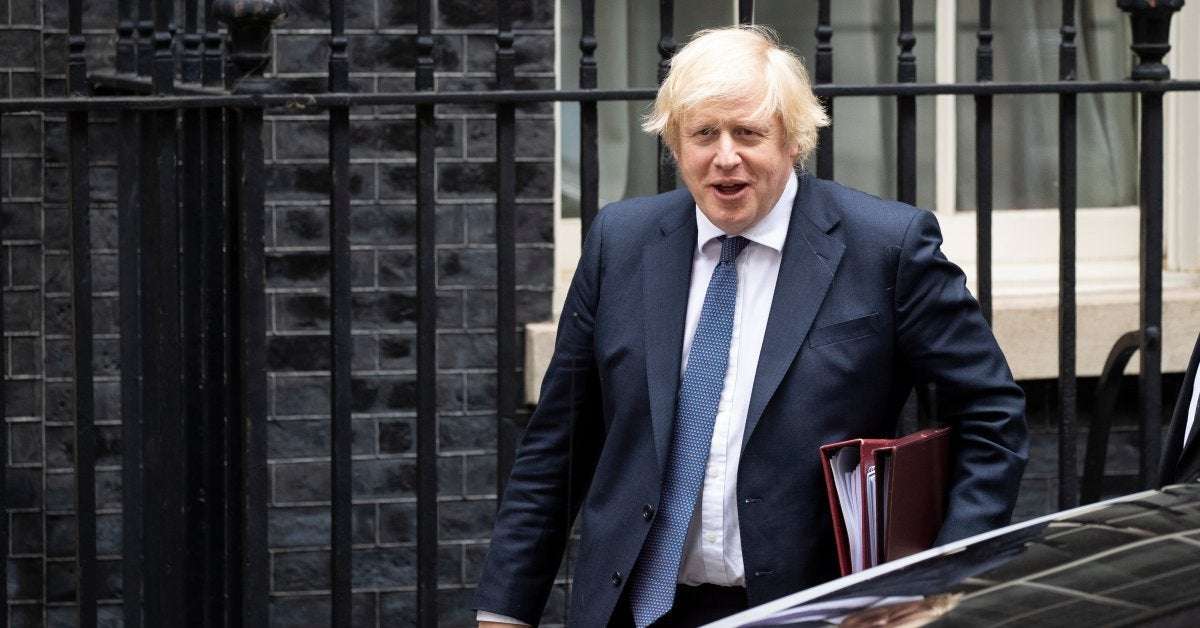U.K. Prime Minister Boris Johnson said Monday that he was “way overweight” in April when he was hospitalized with COVID-19, as his government launched a campaign to cut the country’s obesity rates as part of its pandemic response.
Citing research by England’s public health body, a British government policy paper published Monday said there is now “consistent evidence” that people who are overweight have a higher risk of being hospitalized, entering intensive care, or dying after contracting COVID-19 than those in weight ranges considered healthy.
Around two thirds of adults in the U.K. are overweight, and half of that group are in turn considered obese, the paper said. The U.K. has the world’s third-highest death toll from COVID-19 with almost 46,000 virus-related deaths as of Monday.
Read more: The Pandemic Is Turning Americans Against the Gym. That Could Be a Good Thing for the Nation’s Health
“When I went into ICU, when I was very ill, I was very… I was way overweight,” Johnson said in a video posted to his official Twitter account to launch the campaign. “I’m only about 5 foot 10, at the [most], and, you know, I was too fat.” He added that he had started going for daily runs with his dog since recovering from COVID-19 and had lost at least 14 pounds.
The U.K. government said that reducing rates of obesity — which is also linked to heart disease, diabetes, and cancer — would help lessen the strain on the country’s National Health Service (NHS) during the pandemic. If all Brits who are overweight lost 5 and a half pounds, the policy paper found, it would save the NHS $135 million by 2025.
Measures announced Monday include the expansion of NHS “weight management” services, a ban on advertising junk food on TV and online before 9 p.m., possible restrictions on how unhealthy products are presented in grocery stores, and legislation to require large restaurant businesses to display calorie counts on their menus.
Johnson said the campaign would “help people a little bit to bring their weight down –– not in an excessively bossy or nannying way, I hope.”
Commentators in the U.K. have expressed surprise that Johnson had championed a national weight loss campaign. Before becoming prime minister, Johnson published several columns arguing against health-related policies of previous governments on the grounds that they intervened too much in people’s private decisions. While running for the leadership of the Conservative Party in July 2019, he criticized levies on sugary, salty and fatty foods as “sin taxes.”
The Coronavirus Brief. Everything you need to know about the global spread of COVID-19 Please enter a valid email address. Sign Up Now Check the box if you do not wish to receive promotional offers via email from TIME. You can unsubscribe at any time. By signing up you are agreeing to our Terms of Use and Privacy Policy Thank you! For your security, we've sent a confirmation email to the address you entered. Click the link to confirm your subscription and begin receiving our newsletters. If you don't get the confirmation within 10 minutes, please check your spam folder.
Write to Ciara Nugent at [email protected].

DefenestrationPraha on July 27th, 2020 at 19:16 UTC »
Reduce sugar consumption to 1920 levels and you will see wonders.
The catch: sugar is addictive and cheap.
Edit: the idea of sugar being addictive is definitely controversial. It is certainly not addictive in the heroin or alcohol sense. And it is certainly true that this has been mostly studied in rats.
But some people develop softer kind dependency, accompanied by cravings during withdrawal. And there is a visible dose tolerance - anyone who has gone through periods of abstinence from sugar will tell you that "normal" candies are almost unbearably sweet after some abstinence, while they taste quite mildly to a person who consumes them daily.
Sugar messes with the dopamine reward pathway, incidentally things like social networks do it as well. And the above described problem of psychological dependency, cravings during withdrawal and high dose tolerance occurs in people who are hooked on Facebook etc as well.
https://www.ncbi.nlm.nih.gov/pmc/articles/PMC6234835/
https://www.psychologytoday.com/us/blog/eating-mindfully/201204/sugar-addiction
This is a study on pigs (closer to humans than rats): https://www.nature.com/articles/s41598-019-53430-9#Abs1
New_Diet on July 27th, 2020 at 17:30 UTC »
At least he admitted it
jeffinRTP on July 27th, 2020 at 16:33 UTC »
Many people in many countries need to lose weight to fight not just covid-19 but many other diseases.